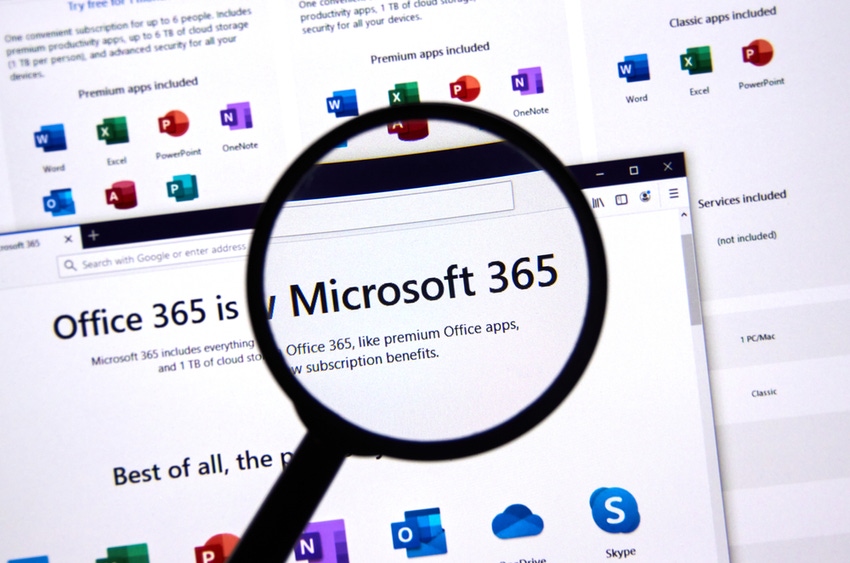Customers who commit to annual terms receive discounts, but they can’t cancel mid-term.
March 1, 2022

The Microsoft 365 price increases that the software giant announced last summer are now in effect. Microsoft’s pricelist on Tuesday started reflecting the higher rates, which jumped by 10-20% depending on the plan.
Microsoft alerted partners in August that it planned to raise M365 pricing for commercial customers effective March 1. It’s the first price hike for Microsoft’s core SaaS portfolios since the company released Office 365 nearly 11 years ago. In the months leading to the price increases, partners encouraged customers to lock in the old rates for another year. The increases apply to both new subscriptions and renewals.
Predictably with any price increases, customers will re-assess their needs, while some will just absorb the higher costs. Because of the various M365 and Office 365 plans, partners said customers could downgrade or reduce the number of licenses.
As subscriptions start coming due, look for that process to start accelerating. Complicating matters is the fact that some customers will face higher increases than others, depending on their mix of subscriptions. The new prices in effect for commercial products include:
Microsoft 365 Business Basic (from $5 to $6 per user)
Microsoft 365 Business Premium (from $20 to $22)
Office 365 E1 (from $8 to $10)
Office 365 E3 (from $20 to $23)
Office 365 E5 (from $35 to $38)
Microsoft 365 E3 (from $32 to $36)
New Customer Experience (NCE)
The Microsoft 365 price increases coincide with the rollout of the company’s New Customer Experience (NCE) seat-based offers promotion. NCE went into effect in January. Under that program, customers can commit to a full year and pay upfront for those subscriptions for a 20% discount. But the caveat is customers can’t cancel those subscriptions in the middle of the year after an initial 72-hour window.
 “So you’re stuck with whatever you commit to at that point for the entire year,” said Frank Lusko, VP of sales and service at Red River, a Chantilly, Virginia, MSP. Also, organizations that now budget their software as operational expenses may not have the capital to lay out. For large organizations, it could amount to an outlay of hundreds of thousands of dollars or more, Lusko said.
“So you’re stuck with whatever you commit to at that point for the entire year,” said Frank Lusko, VP of sales and service at Red River, a Chantilly, Virginia, MSP. Also, organizations that now budget their software as operational expenses may not have the capital to lay out. For large organizations, it could amount to an outlay of hundreds of thousands of dollars or more, Lusko said.
Customers who agree to annual term commitments can pay monthly if they use a Microsoft partner. That partner can pay monthly for the customer. But if the customer stops paying during the term of the contract, the partner is responsible for the amount due.
“We don’t have huge collection issues and we don’t have a lot of customers that go out of business or quit paying, so we’re going to absorb that risk,” said Zac Paulson, CEO Of TrueIT, an MSP based in Fargo, North Dakota. “If it becomes a problem in the future, we will have to figure something out.”
Paulson said he hasn’t heard much backlash about the price increases, but many are questioning the annual commitments.
“The problem, according to every provider I’ve talked to, is really that annual term commitment,” he said. “It’s just not how Microsoft has ever operated before. It’s very, very foreign to us. We all can understand they’ve expanded the platform and we all understand that costs go up. But we’re just not thrilled about the fact that clients have to commit to an annual subscription.”
Microsoft said customers who require more flexibility should stick with monthly plans. Tony Guidi, senior VP of strategic partnerships at Core BTS, said some clients are willing to make that commitment for the price savings.
“We have been working with our clients to move them into NCE before the price increase, so that at least pushes off any price increase for them for another 12 months,” Guidi said.
Last-Minute Rush
A Microsoft promotion that offered partners a 5% discount for submitting NCE annual subscriptions created a last-minute rush. Partners able to transact NCE deals before the price increases took effect also didn’t have to pay the 20% premium.
Paulson said the volume of last-minute deals caused Microsoft’s site for managing the transactions to go down Monday night. Microsoft is now giving those partners until March 14 to transact those deals and take advantage of the incentive. Pax8, TrueIT’s MSP support provider, noted the grace period in an update on Tuesday to its NCE post from November.
Microsoft hopes that it is lessening the blow of the price increases by including Teams calling with most plans. The company said it is adding unlimited dial-in support for Teams meetings with its enterprise, business, frontline and government suites.
“It absolutely softens the blow,” Guidi said. “They were paying for that voice add-on and that gets incorporated into the new license.”
Want to contact the author directly about this story? Have ideas for a follow-up article? Email Jeffrey Schwartz or connect with him on LinkedIn. |
Read more about:
MSPsAbout the Author(s)
You May Also Like


